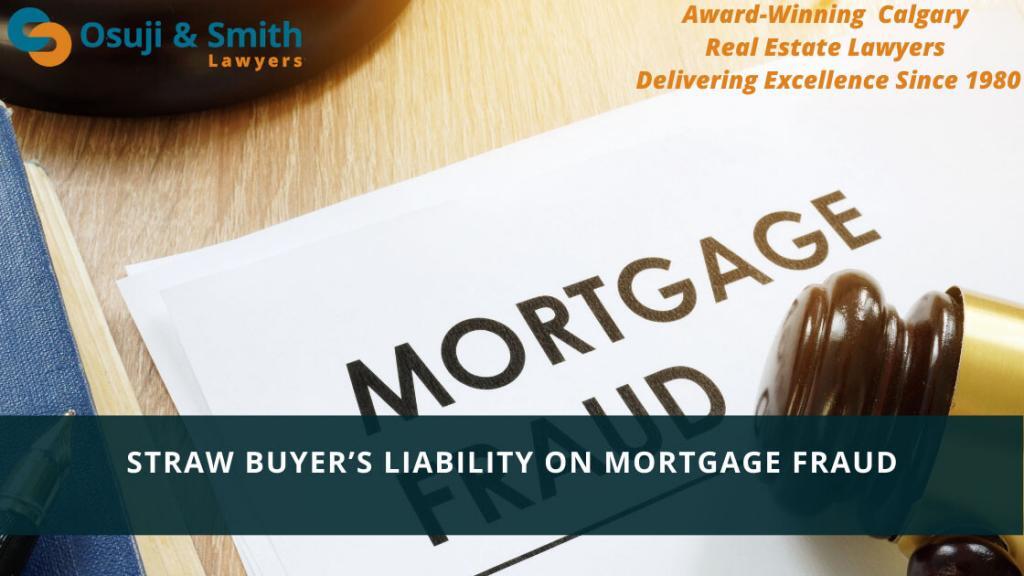Straw Buyer’s liability on Mortgage Fraud
With the energized real estate market and soaring property values, we see an influx of people willing to take advantage of low-interest rates. Unfortunately, with the current housing market, mortgage fraud can also soar in number and size.
Mortgage fraud takes various forms. It can include making false statements in a mortgage application, including misstating income, misrepresenting the amount or source of down payment, and concealing debt. It can also include lending identity and good credit to purchase a property on behalf of another person (which is commonly characterized as Straw Buyer fraud).
The case, Scotia Mortgage Corporation v Meshkati, 2019 ABQB 267, presents a good example of how a straw buyer can be held legally held responsible for the damages arising from the mortgage fraud, even if the straw buyer was no longer on the mortgage.
In this case, the actual buyer had a contract to purchase a house for approximately $1.3 million. She then purported to sell the property to the straw buyer for approximately $1.9 million. The straw buyers received $40,000 to apply for a mortgage on the Property, and the bank approved a mortgage of $1.4 million to the straw buyers. The straw buyers made mortgage payments on the property for six months, which were reimbursed by other parties. Thereafter, the straw buyers transferred the property back to the actual buyer for a purported purchase price of $2.2 million (without actually receiving the purchase price), and the actual buyer assumed the mortgage of $1.4 million.
Approximately 4 months later, the actual buyer defaulted on the mortgage. The bank commenced action against many parties, including the actual buyer and the straw buyers. During the action, the Bank could recover approximately $850,000 by selling the Property. For the remaining balance of the mortgage, the bank brought a summary judgment application against the straw buyers, who were no longer on the mortgage agreement between the bank (as the original mortgage was assumed by the actual buyer), based on civil fraud that caused the bank to issue the mortgage in the first place. The bank relied on misrepresentations made in the straw buyers’ mortgage application, including those with respect to their assets, down payment, for whose benefit the loan was being taken out, and how the property was to be used.
The straw buyers tried to defend the application by alleging that the mortgage applications were prepared by other individuals and they did not review the documents before signing them. However, from the court’s perspective, the straw buyers were simply reckless and shut their eyes to what was before them. They were willfully blind. The court was of the view that the straw buyers’ participation and representation were crucial to the mortgage fraud’s success, and as such, they were responsible for the damages arising from their mortgage application.
The lesson from the foregoing case is obvious. Do not participate in mortgage fraud. Even if your name is no longer on the mortgage, you can be personally liable. If someone wants to use your identity and credit to purchase a property, refuse!
If you are encouraged to include false information on mortgage application, refuse! Lastly, review all documents before you sign them.
Please contact Osuji & Smith Real Estate Lawyers for all your real estate needs (buying, selling, and refinancing residential and commercial properties).
Author: Justin (Hyuk Ju) Kwon


